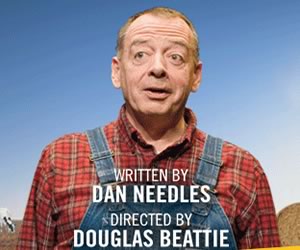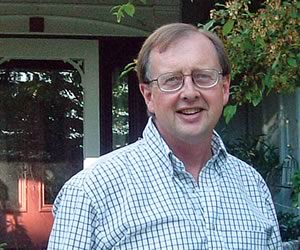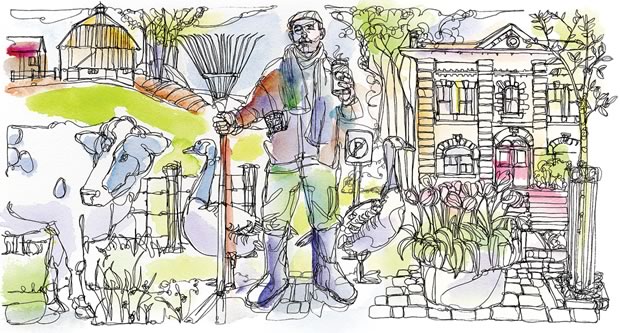A Sense of Place
I bought my own farm, married a farm girl from the next township, and settled down to a view of Georgian Bay and the life of a hunter-gatherer, or “freelancer,” to use the ancient Ojibway term.
True confessions from the ninth concession
For the past 30 years I’ve made a living writing about rural Ontario, which is a bit odd considering I am an immigrant to this sideroad I call home. I’m an American immigrant for my sins. I am descended from two families of peasant farmers who fled across the Atlantic in the 1600s in search of free land, and spent the next three centuries roaming North America trying to figure out some way to get off the land and into some employment that offered a decent living.
My mother’s family succeeded first, in the farm implement business near Port Hope, Ontario. Hay fever drove my father’s father off an Iowa corn farm in 1912, across the border and into the tire business in Kitchener. Business was so good for both families that my parents were eventually able to give up gainful employment and turn to the theatre. Then, when we were reasonably comfortable and settled in a big house in the city with indoor plumbing and an oil furnace, my mother decided to buy another farm. It’s been a struggle ever since.
In 1955, Mother drove an hour north of the city to Dufferin County and bought a hundred acres of treeless hills that had been chewed down to the quick by sheep for more than a century. A rabbit could not have lived off that farm unless it had a job in town. The other farms on the concession road weren’t much better off. The township had been steadily losing population since the agricultural depression of the 1890s and most of the old farmhouses hadn’t seen new shingles or a coat of paint in living memory.
But there was something very attractive about that old rural community. I loved the way the neighbours worked together and played together. It had a marvellous talent for making its own fun and it had a wonderful way of pulling together in a crisis, like a death or a fire.
Theatre people are not typically much interested in children. My parents turned me out to free-range at an early age to roam the hills of Mono Township with a pony and a .22 rifle. I was adopted by a group of hard-living cattle farmers who instructed me in the ancient art of hand rolling a cigarette and driving fast on dirt roads. By the time my education was complete, the painstaking work of my ancestors had been completely undone. The city grew quickly past my powers to comprehend it. I bought my own farm, married a farm girl from the next township, and settled down to a view of Georgian Bay and the life of a hunter-gatherer, or “freelancer,” to use the ancient Ojibway term.
Biologists tell us that edge communities, where the savannah meets the rainforest or the meadow meets the woodlot, produce the greatest diversity of species. These junction zones often contain species of each of the overlapping communities as well as some species that have become adapted specifically for living in these zones. If you’re looking for surprises in biology, this is where you’ll find it.
This publication speaks to one of those edge communities, where the town meets the country. Here we find a colourful assortment of people who, chances are, have a foot in both camps and have learned to live by their wits. They are an interesting combination of the sophisticated and the practical. They might listen to Mozart while they blow snow. They go to potluck suppers and trade seed catalogues. They use the old community hall for sustainable food breakfasts and take cappuccino makers on deer hunts.
I may be a “blow-in” myself, but my wife is as native to these hills as a hawthorn root. All the men in her family limp from some encounter with a cow. She’s related to everyone between Highway 7 and Georgian Bay. My sons complain that before they ask a girl out, they have to call their grandmother to see if it’s all right. She belongs to an extended network of women who were raised on a 100-yard diet and can amuse themselves in an open field. CSIS can only wish they knew as much about what happens in this neighbourhood.
For this writer and for this moment at least, the great migration has finally come to a halt.
I am at home.
More Info
The latest installment in Dan Needles’ Wingfield series, Wingfield Lost & Found, plays at Theatre Orangeville from March 28 to April 15. The plays are based on the stockbroker-turned-farmer character Needles introduced in a weekly column he wrote as editor of the Shelburne Free Press and Economist in the 1970s.
Related Stories

Dan Needles: Wingfield’s Progress
Mar 24, 2012 | | Back IssuesFrustrated by the disappearance of Mono’s farm community, playwright Dan Needles created Walt Wingfield, a feckless ex-urbanite who champions the spirit of rural life and keeps the audience rolling ruefully in theatre aisles.

Welcome home, Dan Needles
Mar 22, 2012 | | Back IssuesPlaywright Dan Needles created Walt Wingfield, a feckless ex-urbanite who champions the spirit of rural life and keeps the audience rolling ruefully in theatre aisles.







